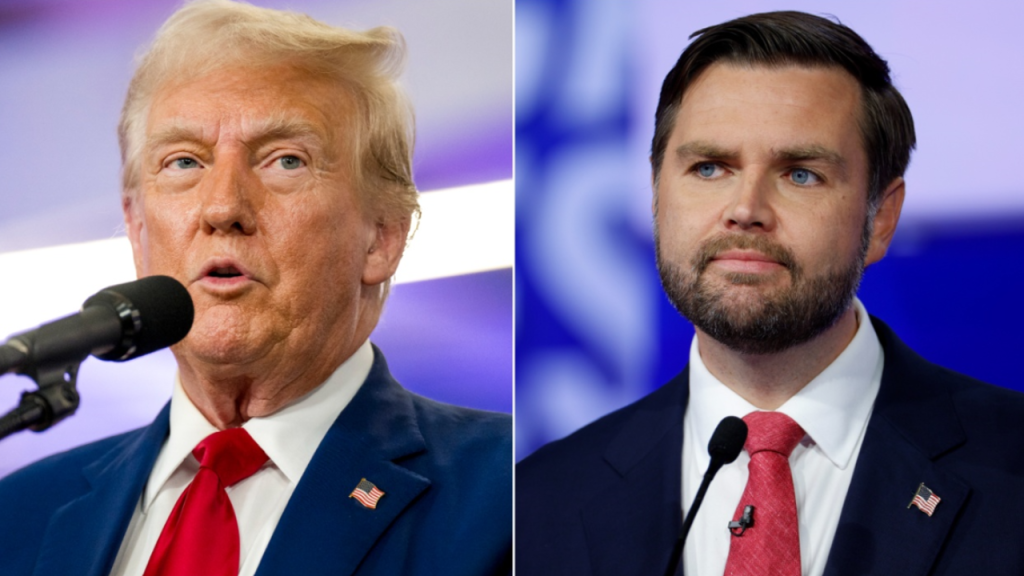In a recent address at the Munich Leaders Meeting in Washington, Vice President JD Vance emphasized the need for dialogue between Russia and Ukraine amid the ongoing conflict. He critiqued the stringent demands being set by Russia as obstacles to peace but expressed hope for a collaborative pathway forward. Vance’s comments reflect a broader call for European nations to take increased responsibility for their own security while contemplating the ramifications of a potential peacekeeping force absent U.S. support.
| Article Subheadings |
|---|
| 1) Vance’s Call for Dialogue Between Russia and Ukraine |
| 2) European Defense Considerations |
| 3) Risks of a U.S.-Absent Peacekeeping Force |
| 4) Vance’s Approach to European Security |
| 5) Global Implications of the Current Conflict |
Vance’s Call for Dialogue Between Russia and Ukraine
During the Munich Leaders Meeting, Vice President JD Vance articulated a pressing need for constructive dialogue between Russia and Ukraine. He underscored that the current demands from Russia regarding concessions have become excessively stringent, hampering progress toward a peaceful resolution. Vance urged that it is crucial for both nations to establish some fundamental guidelines that would facilitate negotiations. “The step that we would like to make right now is for both the Russians and the Ukrainians to agree on basic frameworks for dialogue,” he stated. The Vice President believes that if rationality prevails, a sustainable peace agreement could be achieved—one that benefits both parties economically.
European Defense Considerations
Vance’s commentary is contextualized within broader discussions about the defense posture of European nations. He has consistently advocated for Europe to enhance its military spending, aligning with the broader “America First” agenda propounded during the previous administration. He highlighted the importance of European nations taking a proactive stance in addressing their own security needs, particularly in light of increasing global instability. This call for action stems from concerns over the escalating threats posed not only by traditional military adversaries but also internal challenges such as illegal immigration and censorship.
Risks of a U.S.-Absent Peacekeeping Force
The discussion became more intricate as Ambassador Wolfgang Ischinger cautioned against the establishment of a peacekeeping force by the U.K. and France without U.S. involvement. According to Ischinger, such a scenario could lead to significant geopolitical consequences, potentially jeopardizing NATO’s cohesion. He articulated that, if European forces were deployed in Ukraine devoid of American backing, their operations might provoke hostile reactions from Russia, escalating tensions further. “That would be the end of NATO as we know it,” Ischinger remarked, illuminating the precarious nature of the current geopolitical landscape.
Vance’s Approach to European Security
Vance’s emphasis on European self-reliance echoes sentiments he expressed earlier in 2024 at the Munich Security Council. His stance advocates for a paradigm shift where European nations take the lead in their defense strategies, rather than relying heavily on U.S. support. This ongoing dialogue, however, has not been without criticism. Some European leaders have rebuffed Vance’s assertions, indicating that comparisons to authoritarian regimes within Europe are not only inappropriate but damaging. For example, German Defense Minister Boris Pistorius publicly addressed these comparisons, suggesting that Vance’s remarks might be misconstrued and serve to divide, rather than unify, the transatlantic alliance.
Global Implications of the Current Conflict
The ongoing conflict between Russia and Ukraine and the international responses to it have ramifications far beyond Europe. As nations grapple with complex issues of security, energy resources, and political alliances, the role of the U.S. remains critical in shaping future outcomes. Vance’s comments at the Munich Leaders Meeting invite scrutiny regarding how geopolitical alignments might shift, especially if NATO becomes less centralized under U.S. leadership. The implications extend not only to European stability but also to global economic frameworks. Should a peacekeeping solution fail or remain delayed, the risk of broader instability in international markets looms large.
| No. | Key Points |
|---|---|
| 1 | Vice President JD Vance emphasizes the need for dialogue between Russia and Ukraine to address conflict resolution issues. |
| 2 | European nations are urged to bolster their defense capabilities in light of shifting global security dynamics. |
| 3 | The risk of a NATO destabilization is underscored if the U.K. and France initiate peacekeeping efforts without U.S. involvement. |
| 4 | Vance’s positions reflect a broader call for European nations to assert more control over their own security matters. |
| 5 | The ongoing Ukraine conflict poses global economic ramifications that could extend beyond European borders. |
Summary
The recent statements made by Vice President JD Vance at the Munich Leaders Meeting shine a light on the intricate geopolitical factors influencing the ongoing conflict between Russia and Ukraine. Emphasizing the urgency for dialogue and greater European security investment, Vance’s position reveals a commitment to fostering a stable and economically beneficial outcome for both nations. However, the warnings regarding NATO’s potential fragmentation in the absence of U.S. leadership highlight the precarious balance of international relations in the face of modern challenges.
Frequently Asked Questions
Question: What is the significance of Vance’s comments on dialogue?
Vance’s remarks highlight the crucial need for both Russia and Ukraine to engage in productive conversations to resolve the ongoing conflict, suggesting that clear guidelines could facilitate this process.
Question: Why does Vance advocate for increased European defense spending?
Vance believes that European nations must take greater responsibility for their own security, particularly given the unpredictable global landscape, thus reducing reliance on U.S. military support.
Question: What are the potential consequences of a NATO without U.S. support?
The absence of U.S. backing could lead to geopolitical fragmentation, risking NATO’s cohesion and potentially encouraging aggressive actions from adversaries like Russia.
